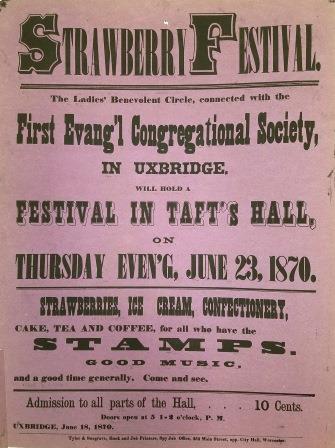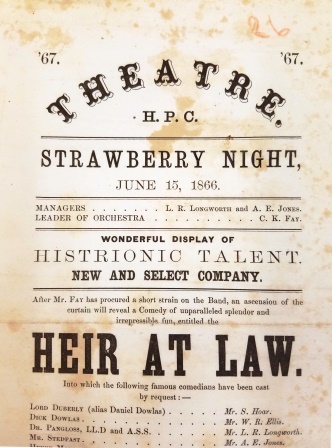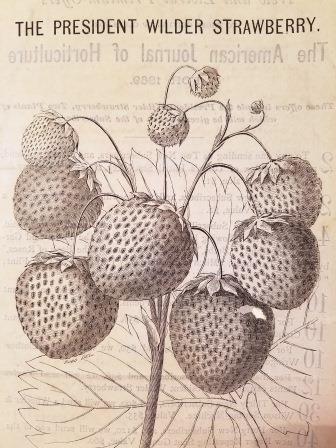By Dan Hinchen, Reader Services
Each year, the MHS sponsors various fellowship programs which bring a wide variety of researchers working on a full range of topics into the MHS library. The Reader Services staff enjoys getting to know the fellows, many of whom become career-long friends of the Society, returning to our reading room year after year.
The Society is excited to receive the list of the incoming research fellows for the 2017-2018 cycle. If any of the research topics below are particularly interesting to you, keep an eye on our events calendar over the course of the upcoming year, as all research fellows present their reearch at Brown Bag lunch programs as part of their commitment to the MHS.
For more information about the different fellowship types, click the headings below.
*****
Suzanne and Caleb Loring Fellows on the Civil War, Its Origins, and Consequences
Kathleen Hilliard
Iowa State University
Bonds Burst Asunder: The Revolutionary Politics of Getting By in Civil War and Emancipation, 1860-1867
Judith Harford
University College Dublin
The Power of Social and Professional Networks to Promote Agency and Negotiate Access: The Role of the Women’s Educational Association, Boston, in Advancing the Cause of Women’s Admission to Harvard
African-American Studies Fellow
Natalie Joy
Northern Illinois University
Abolitionists and Indians in the Antebellum Era
Andrew Oliver Fellow
Susan Eberhard
University of California – Berkeley
Artisanal Currencies: Silver Circulations of the US-China Trade, 1784-1876
Andrew W. Mellon Fellows
Daniel Burge
University of Alabama
A Struggle Against Fate: The Opponents of Manifest Destiny and the Collapse of the Continental Dream, 1846-1871
Angela Hudson
Texas A&M University
The Rise and Fall of the Indian Doctress: Race, Labor, and Medicine in the 19th-century United States
Lindsay Keiter
Colonial Williamsburg Foundation
Uniting Interests: Love, Wealth, and the Law in American Marriage, 1750-1860
Kimberly Killion
University of California – Berkeley
From Farms to Kitchens to “the Body Laboratory”: Nutritional Science and the Politics of Food in the United States
Sunmin Kim
University of California – Berkeley
A Laboratory for the American National Identity: The Re-Invention of Whiteness in the Dillingham Commission (1907-1911)
Aaron Moulton
University of Arkansas
Caribbean Blood Pact: Dictators, Exiles, and the CIA in the Caribbean Basin, 1944-1955
Heather Sanford
Brown University
Palatable Slavery
Jaclyn Schultz
University of California – Santa Cruz
Learning the Value of a Dollar: Children and Commerce in the U.S., 1830-1900
Christopher Pastore
University at Albany
American Beach: Law, Culture, and Ecology along the Ocean’s Edge
Benjamin F. Stevens Fellow
Gretchen Murphy
University of Texas – Austin
Disestablishing Virtue: Federalism, Religion, and New England Women Writers
Louis Leonard Tucker Alumni Fellows
Alexandra Montgomery
University of Pennsylvania
Projecting Power in the Dawnland: Colonization Schemes, Imperial Failure and Competing Visions of the Gulf of Maine World, 1710-1800
Ittai Orr
Yale University
Intellectual Power: Print Culture and Intelligence in the United States, 1781-1908
Michael Williams
Carnegie Mellon University
Impolite Science: Print and Performance in the Eighteenth-Century Atlantic
Malcolm and Mildred Freiberg Fellow
Derek O’Leary
University of California – Berkeley
Building the American Archives
Marc Friedlaender Fellow
Nina Sankovitch
Independent Scholar
The Rebels of Braintree: Exploring Collaboration, Conflict, and Conciliation Between Colonial Families Prior to the American Revolution
Massachusetts Society of the Cincinnati Fellow
John McCurdy
Eastern Michigan University
Quarters: Billets, Barracks, and Place in Revolutionary America
Ruth R. & Alyson R. Miller Fellows
Kabria Baumgartner
University of New Hampshire
A Right to Learn: African American Women and Educational Activism in Early America
Caylin Carbonell
The College of William and Mary
Women and Household Authority in Colonial New England
W. B. H. Dowse Fellows
David Ciepley
University of Denver
The Tug-of-War between Trust and Corporation as Models for Colonial New England Government
George O’Brien
University of South Carolina
“What an expecting and troublesome being a New England Refugee is”: The Struggles of Early New England Emigrants in Nova Scotia, 1755-1783
Kimberly Blockett
Penn State University – Brandywine
Race, Religion, and Rebellion: Recovering the Antebellum Writing and Itinerant Ministry of Zilpha Elaw
Laurel Daen
The College of William and Mary
The Constitution of Disability in the Early United States
Adrian Weimer
Providence College
Godly Petitions: Puritanism and the Crisis of the Restoration in America
New England Regional Fellowship Consortium Fellows
Christopher Babits
University of Texas – Austin
To Cure a Sinful Nation: A Cultural History of Conversion Therapy and the Making of Modern America, 1930 to the Present Day
Renzo Baldasso
Arizona State University
The Emergence of the Visuality of the Printed Page from Gutenberg to Ratdolt: Case Studies in the Collections of the New England Consortium of Libraries
Kathrinne Duffy (MHS)
Brown University
Doctrine of the Skull: Phrenology, Public Culture, and the Self in Antebellum America
Craig Gallagher
Boston College
Covenants and Commerce: Religious Refugees and the Making of the British Atlantic World
J. Ritchie Garrison (MHS)
University of Delaware
Matter and Mind in the Early Modern Atlantic World
Karen Harker
University of Birmingham
Shakespeare’s 19th-Century Soundscape: Reconstructing, Reconsidering, and Preserving Shakespearean Incidental Music written for Victorian and Edwardian Theatres
Hina Hirayama
Independent Scholar
Edward Sylvester Morse (1838-1925): his American Life & Times
Alexander Jacobs
Vanderbilt University
Pessimism and Progress: Left Conservatism in Modern American Political Thought
Shira Lurie (MHS)
University of Virginia
Politics at the Poles: Liberty Poles and the Popular Struggle for the New Republic
Jen Manion
Amherst College
Born in the Wrong Time: Transgender Archives and the History of Possibility, 1750-1900
Laura McCoy (MHS)
Northwestern University
In Distress: Family and a Marketplace of Feeling in the Early American Republic
Brianna Nofil
Columbia University
Gender, Community Policing, and Crime Control in the Late 20th C.
Heather Sanford
Brown University
Palatable Slavery
Nancy Siegel (MHS)
Towson University
Political Appetites: Revolution, Taste, and Culinary Activism in the Early Republic
Daniel Soucier
University of Maine
Navigating Wilderness and Borderland: Environment and Culture in the Northeastern Americas during the American Revolution, 1775-1779
Tyler Sperrazza (MHS)
Penn State University
Defiant: African American Cultural Responses to Northern White Supremacy, 1865-1915
Amy Voorhees
Independent Scholar
Christian Science Identity and New England Cultures, 1820-1920
Peter Walker
McNeil Center – University of Pennsylvania
The Church Militant: Anglicanism, Loyalism, and Counterrevolution in the British Empire, 1720-1820
Donald Yacovone (MHS)
Harvard University
The Liberator’s Legacy: Memory, Abolitionism, and the Struggle for Civil Rights, 1865-1965
Colonial Society of Massachusetts Fellowship
Hannah Anderson (MHS)
University of Pennsylvania
Lived Botany: Households, Ecological Adaptation and the Origins of Settler Colonialism in Early British North America




